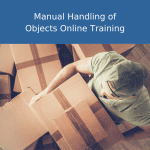Description
Medication Management Online Training
Our Medication Management online training course is designed for staff working within a care environment. This course is in line with the National Minimum Standards Requirements and recent CQC guidelines. The course will deliver candidates with an understanding of the legislation involved with the administration of medication, along with being able to follow procedures set for safe administration of medication.
- Developed by professionals
- Accredited by The CPD Accreditation Group
- 100% online, learn at your own time and pace
- Translates into over 100 different languages
- Instant certificate downloaded
Who is it for?
The Medication Management Online Training is for healthcare professionals:
- caregivers,
- support staff in healthcare,
- residential care workers,
- community support workers,
- pharmacy technicians, and students in healthcare programs.
It’s also suitable for individuals looking to enhance their knowledge in medication management for personal or professional development.
If you have completed a level 2 online medication training, you can also take our cpd accredited level 3 medication training online course which is the next stage.
When will I get my certificate?
Once you have successfully passed our course you will be able to download and print your certificate immediately.
As this course has been accredited by the CPD Group your certificate will contain the CPD logo and unique reference number.
Course Key Points
- Introduction to medication
- Storage and dispensing
- Documentation, confidentiality and record keeping
- Administration of medication
- Reducing and eliminating medication errors
- Accountability and responsibility
- Legislation and requirements
- Regulating bodies
Course Outline: Medication Management Online Training
1. Introduction to Medication:
- Understanding the importance of medication management in healthcare settings.
- Exploring the different types of medications and their purposes.
- Recognizing the role of healthcare professionals in ensuring safe and effective medication use.
2. Storage and Dispensing:
- Learning proper storage conditions for medications, including temperature, light, and humidity requirements.
- Understanding the importance of maintaining medication integrity and preventing contamination.
- Exploring best practices for accurate medication dispensing, including labeling and packaging considerations.
3. Documentation, Confidentiality, and Record Keeping:
- Understanding the essential documentation requirements for medication management, including medication charts, prescriptions, and administration records.
- Exploring the importance of maintaining confidentiality and privacy when handling medication-related information.
- Learning effective record-keeping practices to ensure accurate and complete documentation.
4. Administration of Medication:
- Understanding the principles of safe and accurate medication administration, including dosage calculations, routes of administration, and timing considerations.
- Learning about different administration techniques, such as oral, topical, injectable, and inhalation routes.
- Exploring the importance of patient education and communication during medication administration.
5. Reducing and Eliminating Medication Errors:
- Identifying common causes of medication errors and understanding their potential consequences.
- Learning strategies to minimise medication errors, including double-checking procedures, verification processes, and error reporting systems.
- Exploring error prevention techniques, such as medication reconciliation and the use of technology in medication management.
6. Accountability and Responsibility:
- Understanding the roles and responsibilities of healthcare professionals involved in medication management, including prescribers, pharmacists, and nurses.
- Exploring ethical considerations and professional standards related to medication administration and patient safety.
- Learning effective communication and collaboration strategies within healthcare teams to ensure accountability.
7. Legislation and Requirements:
- Familiarizing participants with relevant legislation, regulations, and guidelines governing medication management, such as medication safety protocols and controlled substances regulations.
- Understanding the legal and ethical implications of non-compliance with medication-related requirements.
- Exploring the role of regulatory bodies in monitoring and enforcing medication management standards.
8. Regulating Bodies:
- Learning about different regulating bodies involved in medication management, such as the Food and Drug Administration (FDA) and the Medicines and Healthcare Products Regulatory Agency (MHRA).
- Understanding the roles and responsibilities of regulating bodies in ensuring medication safety and efficacy.
- Exploring the processes of medication approval, post-marketing surveillance, and regulatory inspections conducted by these bodies.
FAQs of Medication Management Level 2 Online Course
The Medication Management Level 2 Online Course is tailor-made for healthcare professionals, offering the essential knowledge and skills to ensure safe and effective medication management for adult patients. In this Medication Management Level 2 course, we have answered some FAQs:
1. What does medication training involve?
Medication training involves educating healthcare professionals and caregivers on safe and accurate medication practices.
It covers administration procedures, dosage calculation, storage, and handling.
The training emphasizes patient safety, error prevention, and proper documentation.
Participants learn about drug interactions, side effects, and emergency procedures.
It equips them with essential skills to ensure responsible medication management and optimal patient care.
2. Who needs medication training?
Medication training is essential for healthcare professionals, caregivers, and individuals responsible for administering medications.
This training ensures they possess the necessary knowledge and skills to handle medications safely and accurately.
Whether working in hospitals, nursing homes, home care settings, or any healthcare environment, medication training is crucial to prioritize patient safety and provide effective healthcare. Having a medication administration training will help you keep to NMC standards on medication management.
3. How long does Online medication training take?
Our Online medication management training courses offer flexible timing, and participants can complete them at their own pace. The duration may vary from a few hours for basic courses to several weeks for more comprehensive programs. For Face to Face and blended training on level 2 Medication Administration training, and level 3 medication training please visit this link.
4. Why should you do medication training?
Medication training is crucial for several reasons:
-
- Patient Safety: Proper training ensures healthcare professionals understand accurate medication administration, reducing errors and ensuring patient safety.
- Accurate Dosing: Training imparts essential knowledge to calculate dosages precisely, ensuring patients receive the correct medications.
- Preventing Adverse Reactions: Education on interactions and side effects enables prompt monitoring and response.
- Legal Compliance: Training ensures adherence to legal and ethical standards, protecting professionals and patients.
- Patient Education: Providers can educate patients and families, promoting adherence and better outcomes.
- Emergency Preparedness: Training equips professionals to handle critical situations effectively.
- Improving Healthcare Quality: Proper medication management enhances care and reduces costs.
- Building Trust: Patients trust knowledgeable providers, fostering confidence in care.
- Continuous Development: Training encourages ongoing learning and growth.
- Best Practices: Evidence-based training promotes standardized and efficient medication practices.
In conclusion, medication training ensures safe, effective, and ethical care, prioritizing patient well-being and healthcare excellence.
5. What are the 4 types of medication?
The four main types of medication are:
-
- Oral Medications: These medications are taken by mouth and swallowed, such as tablets, capsules, and liquids.
- Topical Medications: These medications are applied to the skin and absorbed through the skin layers. Examples include creams, ointments, and patches.
- Injectable Medications: These medications are administered directly into the body through injections, such as intramuscular, subcutaneous, and intravenous injections.
- Inhaled Medications: These medications are delivered to the body through inhalation, commonly through devices like inhalers or nebulizers, which allow the drug to be absorbed through the respiratory system.
6. What is the Sublingual Route?
The sublingual route refers to a method of medication administration where the medication is placed under the tongue and allowed to dissolve or be absorbed through the mucous membrane.
This direct absorption into the bloodstream bypasses the digestive system, leading to a faster onset of action compared to oral medications.
Sublingual medications are often chosen for their rapid absorption, especially when immediate effects are required or when the gastrointestinal tract may hinder drug absorption.
7. Is the course suitable for beginners?
Yes, the course is suitable for both beginners and those with some prior experience in healthcare. It provides a comprehensive understanding of medication administration.
8. What is medication management?
Medication management involves safely handling, administering, and monitoring medications. It ensures proper dosage, adherence to schedules, and understanding potential side effects. This process is crucial in healthcare to enhance patient safety and well-being.
9. Is there a practical component to the online medication management training?
No. The online course does not have the practical element which a face-to-face level 2 medication management training would have. But the material, slide presentations and videos in our online medication management course are good enough to expose you to the practical aspects. Be sure which training options (face-to-face/blended/online) would be best for you.





